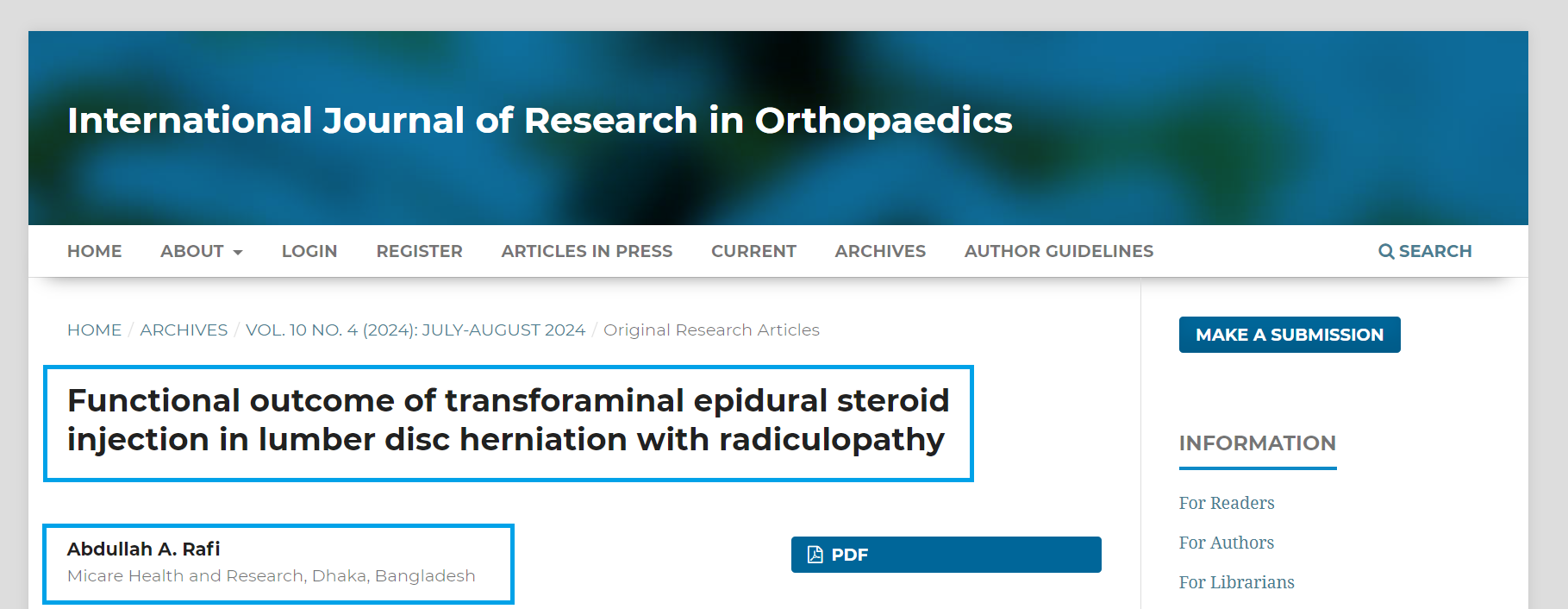Micare Health & Research is proud to coordinate this research paper, which recently published an article on TFESI in an international peer-reviewed journal.

Title: Functional outcome of transforaminal epidural steroid injection in lumber disc herniation with radiculopathy.
ABSTRACT
Background: Transforaminal epidural steroid injection (TFESI) is a useful therapeutic tool for lumber disc herniation with radiculopathy. TFESI reduce inflammation and edema around herniated disc and nerve root, thus alleviating pain and accelerating the natural history of the herniated disc by shrinkage. This study aims to determine the effectiveness of TFESI in lumber disc herniation with radiculopathy.
Methods: In this prospective observational study, 273 patients were included considering inclusion & exclusion criteria. All subjects received TFESI for lumber disc herniation with radiculopathy. The primary outcome was assessed with a Bengali version of Oswestry disability index (ODI) score and Roland-Morris disability questionnaire (RMDQ) scores at 2 weeks, 1 month, 3 months and 1 year.
Results: From baseline (18.6±3.6), mean RMDQ score was significantly reduced at 2 weeks (14.4±3.7), at 1 month (13.8±3.8), at 3 months (11.6±3.6) and at 1 year (7.8±3.7) respectively. 69.2% patients had severe disability at baseline according to disability rank of ODI score; after procedure during follow up severe disability was found in 21.6% cases at 2 weeks, 9.1% at 1 month, 5.0% at 3 months and 1.2% at 1 year. The reduction of severe disability from baseline in subsequent follow up was significant. From baseline (45.7±10.0), mean ODI score was significantly reduced at 2 weeks (36.4±9.0), at 1 month (28.2±8.9), at 3 months (24.3±8.9) and at 1 year (18.9±10.5) respectively.
Conclusions: Transforaminal epidural steroid injection significantly reduced disability and provide improved functional outcome in patients with lumber disc herniation with radiculopathy.
